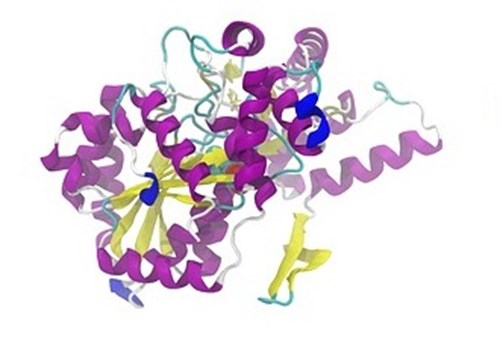The Role of Proteomics in the National Collection of Type Cultures

Proteomics studies the entire proteins in protein complexes, organelles or organisms. It represents a very powerful but also very challenging and complex discipline of biology because proteome is dynamic, compartmental, and interactive through posttranslational modifications. The National Collection of Type Cultures (NCTC) is fortunate to have two proteomics scientists, Dr. Jianhe Peng and Dr. Renata Culak who are both dedicated to applying proteomic technologies to advance our knowledge of the bacterial strains within our globally important collection.
The most recent study being undertaken by the proteomics team is the application of mass spectrometry-based quantitative proteomics to examine the 2016 World Health Organisation (WHO) panel of Neisseria gonorrhoeae isolates. Each of these strains have been very well described and come with complete closed genomic sequences and well defined phenotypic and genotypic antimicrobial resistance patterns (Unemo et al, 2016). In order to gain a greater understanding of those antimicrobial resistance mechanisms which are currently unexplained using genomic approaches, proteomic analyses has been applied. Preliminary results indicate that a robust method has been developed to study protein expression in N. gonorrhoeae, with the proteomic profiles being able to differentiate between genetically similar stains. Among the overexpressed proteins are efflux pumps, oxidative stress responders and membrane proteins, which are related to antimicrobial resistance. One efflux pump could be associated with azithromycin resistance.
To keep up to date with NCTC proteomic developments follow us on Twitter @NCTC_3000.
References
Unemo, Magnus et al. “The Novel 2016 WHO Neisseria Gonorrhoeae Reference Strains for Global Quality Assurance of Laboratory Investigations: Phenotypic, Genetic and Reference Genome Characterization.” Journal of Antimicrobial Chemotherapy 71.11 (2016): 3096–3108
Related Links
WHO control strains for Neisseria gonorrhoeae antimicrobial susceptibility testing
